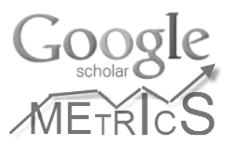El dÃa después: Impacto del COVID-19 en los docentes y su labor educativa en Paraguay
Abstract
Resumen:
En Paraguay, el acatamiento de las medidas de distanciamiento ha conllevado a la digitalización inmediata en todos los niveles educativos, tal impacto demanda para sus actores, por un lado, conocimientos sobre las tecnologÃas de la información y comunicación (TIC 's), y por otro, recursos afrontativos para sobrellevar el impacto. El objetivo del estudio fue identificar y describir comportamientos de riesgo, protección, autoeficacia y afrontamiento en docentes a través de una encuesta de elaboración propia. La investigación empleó un diseño no experimental, descriptivo, de corte transversal y los resultados fueron analizados con el paquete estadÃstico SPSS v1.2.0. De los resultados se destaca que el 51% reportó problemas de conectividad en clases, 82% que la pandemia lo ha afectado económicamente, no obstante, 61,7% consigue permanecer casi siempre estable psicológicamente a pesar de las dificultades por los cambios estructurales. En conclusión, se identificó la presencia de conductas de protección en la muestra, en más de 50%, en todos los indicadores evaluados; igualmente conductas autoeficaces y de afrontamiento funcional.
Palabras clave: Afrontamiento; Autoeficacia; Conductas de Riesgo; Covid-19; Docentes; Protección.
Â
Abstract:
In Paraguay, compliance with distancing measures has led to immediate digitization at all educational levels, such an impact demands for its actors, on the one hand, knowledge about information and communication technologies (ICTs), and on the other, coping resources to cope with the impact. The objective of the study was to identify and describe risk, protective, self-efficacy and coping behaviors in teachers through a survey of their own preparation. The research used a non-experimental, descriptive, cross-sectional design and the results were analyzed with the SPSS v1.2.0 statistical package. From the results, it stands out that 51% reported connectivity problems in classes, 82% that the pandemic has affected them economically, however, 61.7% almost always manage to remain mentally stable despite difficulties due to structural changes. In conclusion, the presence of protective behaviors in the sample was identified, in more than 50%, in all the evaluated indicators; likewise self- efficacy and functional coping behaviors.
Keywords: Coping; Self-efficacy; Risk behaviors; Covid-19; Teachers; Protection.
Â
Resumo:
No Paraguai, o cumprimento das medidas de distanciamento tem levado à digitalização imediata em todos os nÃveis educacionais, tal impacto exige de seus atores, por um lado, conhecimentos sobre as tecnologias de informação e comunicação (TICs), e por outro, recursos de enfrentamento para o enfrentamento o impacto. O objetivo do estudo foi identificar e descrever os comportamentos de risco, proteção, autoeficácia e enfrentamento em professores por meio de um levantamento de sua própria preparação. A pesquisa utilizou um desenho não experimental, descritivo e transversal e os resultados foram analisados com o pacote estatÃstico SPSS v1.2.0. Dos resultados, destaca-se que 51% relataram problemas de conectividade nas classes, 82% que a pandemia os afetou economicamente, porém, 61,7% quase sempre conseguem se manter mentalmente estáveis apesar das dificuldades devido à s mudanças estruturais. Em conclusão, foi identificada a presença de comportamentos protetores na amostra, em mais de 50%, em todos os indicadores avaliados; da mesma forma, autoeficácia e comportamentos de enfrentamento funcionais.Â
Palavras-chave: Coping; Auto-eficácia; Comportamentos de risco; Covid19; Professores; Proteção.
Downloads
How to Cite
Issue
Section
License
Articles published in this journal are protected under the Creative Commons Attribution-NonCommercial-ShareAlike 4.0 International (CC BY-NC-SA 4.0) license. This means that authors retain full rights over their research and publications at all times. As a journal, we fully respect and promote the principles of open access established by this license, allowing the work to be shared, adapted, and distributed for non-commercial purposes, provided that appropriate credit is given to the authors and any derivative works are licensed under the same terms.
Authors are responsible for obtaining the required permission when they wish to reproduce part of the material (figures, etc.) from other publications.
Likewise, CNPs allows authors to host in their personal sites or other repositories that they deem convenient the Final and Definitive Version of the published article with the format assigned by the journal. In no case do we allow access to preprints of the article under evaluation or already published.
When submitting an article to CNPs you are aware that all the contents of CNPs are under a Creative Commons License. In which it is allowed to copy and share the contents freely, always making reference to the origin of the publication and its author.













